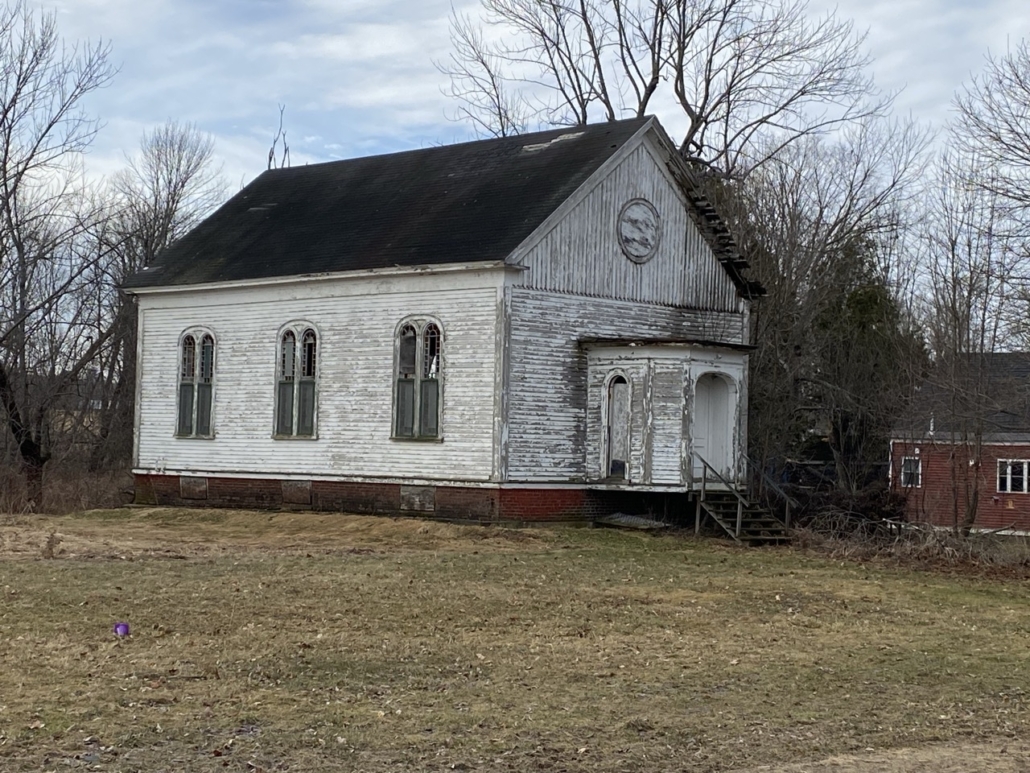Vassalboro planners to forward draft ordinance on solar development to town attorney
 by Mary Grow
by Mary Grow
After their Jan. 17 meeting, Vassalboro Planning Board members have a draft ordinance section that would regulate commercial solar development in near-final form. They plan to forward it to the town attorney for her review.
Board members and representatives of the Main Street Maine coalition, the residents near a suggested solar site between Route 32 and Outlet Stream north of Duratherm Window Company, spent three hours on the document. Several people made presentations before planning board members settled to two-and-a-half hours of substantive discussion and wordsmithing.
There is currently no application for a commercial solar project pending. Because of the moratorium Vassalboro voters approved last November, there will be no action on any such application until at least early May 2023. Select board members may extend the moratorium, for example, until after the June town meeting if an ordinance is ready for voters’ action.
Ann White read a letter from the Main Street Maine coalition. Jerry Hill, another spokesperson, had an opinion piece in the Jan. 19 issue of The Town Line (p. 3).
The Jan. 17 letter thanked planning board members for their time and attention and acknowledged their recognition of effects of solar projects on neighbors and on Vassalboro’s future.
However, it also said Main Street Maine members “do not believe all members of the planning board have the community’s best interest at heart and are only concerned with their agenda,” and called for impartiality.
The letter said the group is not against solar, but members want appropriate regulations in place to protect residents and the environment before the planning board considers applications. An accompanying document offered suggested ordinance amendments and additions.
One proposal, compatible with Hill’s The Town Line article, is that “The residents who visually surround the project collectively have complete control of what goes into the buffer.” The buffer is the area of trees and shrubs shielding the project from view.
Coalition members recommend the ordinance include a required emergency response plan. They suggest a committee to help the codes officer, and that the codes officer be required to inspect a project weekly during construction and monthly during operation.
Planning board members thanked the group for their help. They discussed several coalition proposals, including soil (or other) tests before construction and/or after a project is operating and buffer standards.
Testing requirements generated debate between the board’s senior members, chairman Virginia Brackett and member Douglas Phillips. Phillips believes solar panels contain dangerous substances; he proposed pre-construction testing to establish a baseline and mandatory testing if a panel were broken.
Brackett said the panels are mostly silicon; other materials are in such small quantities as to be non-threatening, and their leaching off even a broken panel is highly unlikely. And, she asked, how would anyone know where to test in advance and what to test for?
Discussion ranged from soil tests before construction to soil tests after damage and from soil tests to water tests to monitoring wells. The topic will be revisited.
Current buffer requirements envision a 50-foot-wide wooded buffer around a solar installation, near property lines but not necessarily along all boundaries of a large lot with a solar array on a small part of it. The buffer would consist of evergreen trees spaced to give them room to grow, with an understory layer of shrubbery to block the view between trees. Board members debated details.
The height of the panels was briefly debated. Holly Weidner, representing the Vassalboro Conservation Commission, recommended limits not be too strict, lest they prohibit dual uses or future technologies. Board members settled on a maximum height of 16 feet as not too intrusive, but sufficient to accommodate a developer who wanted to use the ground under the panels for gardens or pasture.
Main Street Maine members want prohibitions on using herbicides or pesticides on a commercial solar installation. Board members agreed.
Various future possibilities were discussed; some may be regulated. Topics included what should be done if a solar farm changed hands, or if the land under it (assuming it is on leased land) changed hands; when a project should be considered abandoned; and how to guarantee financing to remove a no longer operating solar array.
Brackett questioned a previously-discussed requirement that the decommissioning process should restore the land to its pre-construction condition. One of Vassalboro’s approved developments is for an area that had been logged and was covered with stumps, she said; and if construction required grading, she did not think the land should be dug up again to restore the original contours.
The next regular Vassalboro Planning Board meeting is scheduled for 6:30 p.m., Tuesday, Feb. 7. Codes Officer Robert Geaghan said there are several applications already pending, including renewed discussion of Tim and Heather Dutton’s plan to reopen the former East Vassalboro Country Store (see the Jan. 12 issue of The Town Line, p. 3).
Responsible journalism is hard work!
It is also expensive!
If you enjoy reading The Town Line and the good news we bring you each week, would you consider a donation to help us continue the work we’re doing?
The Town Line is a 501(c)(3) nonprofit private foundation, and all donations are tax deductible under the Internal Revenue Service code.
To help, please visit our online donation page or mail a check payable to The Town Line, PO Box 89, South China, ME 04358. Your contribution is appreciated!





Leave a Reply
Want to join the discussion?Feel free to contribute!